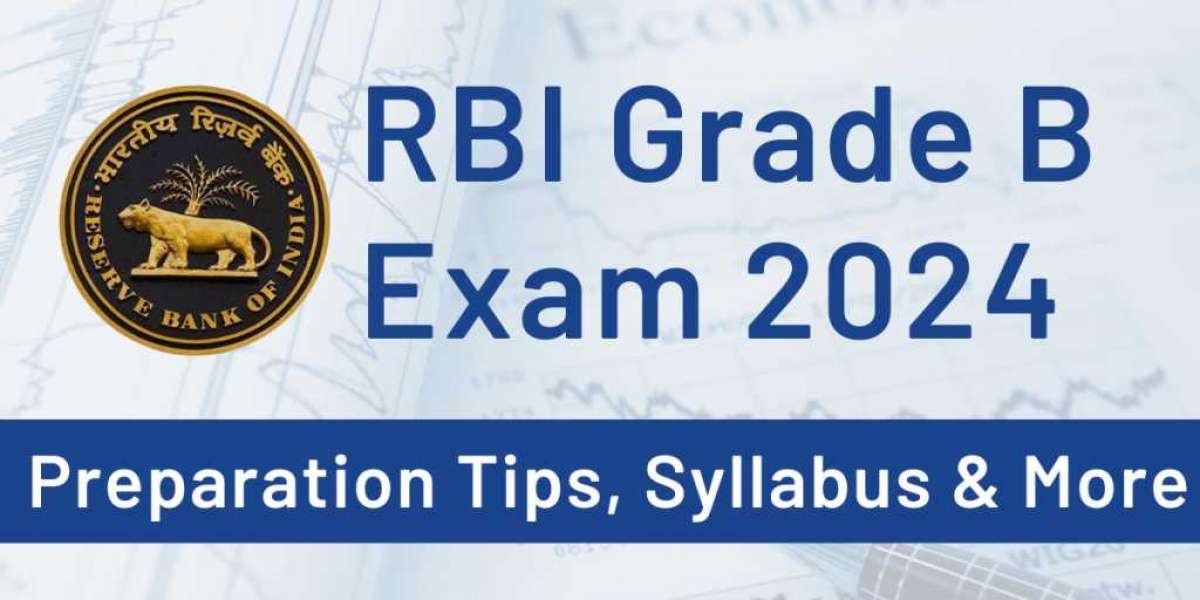The RBI Grade B exam is one of the most prestigious exams in India. If you’ve been dreaming of a career in the banking sector, especially with the Reserve Bank of India, this exam is your ticket to that goal. But let’s face it—cracking the RBI Grade B exam isn’t a walk in the park. It’s highly competitive, with thousands of candidates vying for a limited number of positions. To stand out and secure your spot, you’ll need more than just hard work. You’ll need a solid strategy. In this guide, we’ll break down some practical tips and strategies that can help you ace the RBI Grade B exam.
Understanding the RBI Grade B Exam Structure
Before diving into the preparation strategies, it's crucial to understand the structure of the RBI Grade B exam. The exam is divided into three phases:
Phase I (Prelims): This is a screening test consisting of four sections—General Awareness, English Language, Quantitative Aptitude, and Reasoning Ability. The total marks for this phase are 200, and candidates have to complete the exam within 2 hours. Phase I is qualifying in nature, meaning you need to clear this to move to the next phase.
Phase II (Mains): Candidates who clear Phase I are eligible for Phase II, which is more in-depth. Phase II comprises three papers—Economic and Social Issues (ESI), English (writing skills), and Finance and Management (FM). Each paper is worth 100 marks.
Phase III (Interview): The final phase is an interview, where your overall personality, confidence, and communication skills are tested. This phase carries 75 marks and plays a crucial role in the final selection.
Step-by-Step Preparation Strategy
1. Start Early
The first and most important tip is to start your preparation early. The RBI Grade B exam covers a vast syllabus, and trying to cram everything in a few months is a recipe for disaster. Ideally, you should start preparing at least 8-10 months in advance. This gives you ample time to cover all the topics thoroughly, practice mock tests, and revise.
2. Know the Syllabus Inside Out
One of the biggest mistakes candidates make is not being familiar with the syllabus. The RBI Grade B exam syllabus is comprehensive and detailed, especially for Phase II. Download the syllabus from the official RBI website and go through it carefully. Make a list of all the topics you need to cover for each phase. This will help you plan your study schedule effectively.
3. Make a Study Plan
Once you know the syllabus, the next step is to create a study plan. Your study plan should be realistic and tailored to your strengths and weaknesses. Allocate more time to subjects you find difficult and less time to subjects you’re comfortable with. Ensure your study plan includes time for revision and mock tests. Stick to your plan religiously, but also be flexible enough to adjust it if needed.
4. Focus on Phase I First
Phase I is the gateway to Phase II, so your initial focus should be on clearing this phase. General Awareness is a significant part of Phase I, and scoring well in this section can give you an edge. Start reading newspapers daily to stay updated on current affairs. Make notes of important events, economic developments, and government policies. In addition to General Awareness, practice quantitative aptitude and reasoning regularly. These sections require speed and accuracy, which can only be achieved through consistent practice.
5. Master Phase II Subjects
Once you’re confident about your Phase I preparation, shift your focus to Phase II. Each paper in Phase II requires a different approach:
Economic and Social Issues (ESI): This paper tests your knowledge of India’s economy, social issues, and policies. Focus on understanding the basic concepts of economics and current economic issues. Books like Ramesh Singh’s “Indian Economy” and the latest government reports can be helpful.
English (Writing Skills): The English paper tests your writing skills through essay writing, précis writing, and comprehension. Practice writing essays on various topics, as this will improve your ability to articulate your thoughts clearly. Reading editorials and articles from reputed newspapers can also help improve your comprehension skills.
Finance and Management (FM): This paper is often the most challenging for non-commerce students. However, with the right resources, you can master it. Books like “Principles of Management” by Harold Koontz and “Financial Management” by Prasanna Chandra are excellent resources. Focus on understanding key financial concepts and management principles.
6. Use the Right Study Materials
The quality of your study materials plays a crucial role in your preparation. While there are numerous books and resources available, not all of them are reliable. Stick to recommended books and materials from trusted sources. For current affairs, newspapers like The Hindu, Economic Times, and Business Standard are excellent choices. Websites like PIB (Press Information Bureau) and the RBI’s official website are also valuable resources.
7. Take Regular Mock Tests
Mock tests are a critical part of your preparation. They not only help you assess your preparation level but also familiarize you with the exam pattern and time management. Start with sectional mock tests to strengthen individual subjects, then move on to full-length mock tests. Analyze your performance after each test to identify your weak areas and work on them. Aim to take at least one RBI Grade B mock test per week as you get closer to the exam date.
8. Revise, Revise, Revise
Revision is the key to retaining what you’ve studied. As the exam date approaches, spend more time revising important topics and notes. Avoid picking up new topics during the last month, as this can lead to confusion and anxiety. Instead, focus on strengthening the areas you’ve already covered.
9. Prepare for the Interview
Many candidates make the mistake of neglecting the interview preparation until they clear Phase II. Don’t fall into this trap. Start preparing for the interview well in advance. Read up on current economic issues, RBI policies, and banking trends. Practice answering common interview questions and work on your communication skills. Remember, the interview is not just about your knowledge but also about your confidence and demeanor.
Additional Tips for Success
1. Stay Positive and Motivated
The journey to cracking the RBI Grade B exam is long and challenging, but staying positive and motivated is essential. Surround yourself with supportive friends and family who encourage you. Take breaks when needed to avoid burnout, and don’t hesitate to seek help if you’re struggling with a particular topic or section.
2. Join a Study Group or Coaching
If you find it difficult to stay motivated or understand certain topics, consider joining a study group or coaching institute. Study groups allow you to discuss topics with peers, which can deepen your understanding. Coaching institutes provide structured guidance and expert advice, which can be especially beneficial for Phase II preparation.
3. Stay Updated with Current Affairs
Current affairs play a significant role in both Phase I and Phase II of the RBI Grade B exam. Develop a habit of reading newspapers and following credible news sources. Focus on economic news, government policies, and international events that could impact India’s economy. Regularly updating your knowledge will help you in both the exam and the interview.
4. Take Care of Your Health
Last but not least, take care of your health. A healthy mind and body are essential for effective preparation. Ensure you’re getting enough sleep, eating a balanced diet, and exercising regularly. Avoid excessive stress by practicing relaxation techniques like meditation or deep breathing exercises.
Conclusion
Cracking the RBI Grade B exam is undoubtedly a daunting task, but with the right strategy, dedication, and perseverance, it’s achievable. Start your preparation early, focus on understanding the syllabus, and practice consistently. Use reliable study materials, take regular mock tests, and revise thoroughly. As the exam date approaches, prepare for the interview with equal seriousness. Most importantly, stay positive and take care of your health. With these tips and strategies, you’ll be well on your way to achieving success in the RBI Grade B exam.







